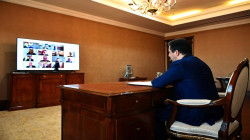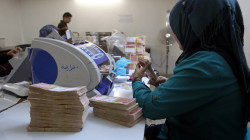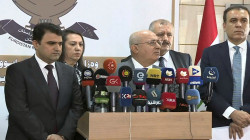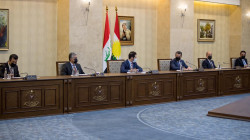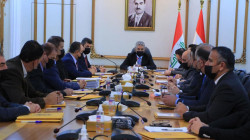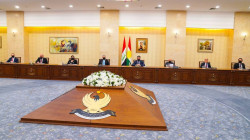Kurdistan's response to displacement challenges and salary disbursement obstacles
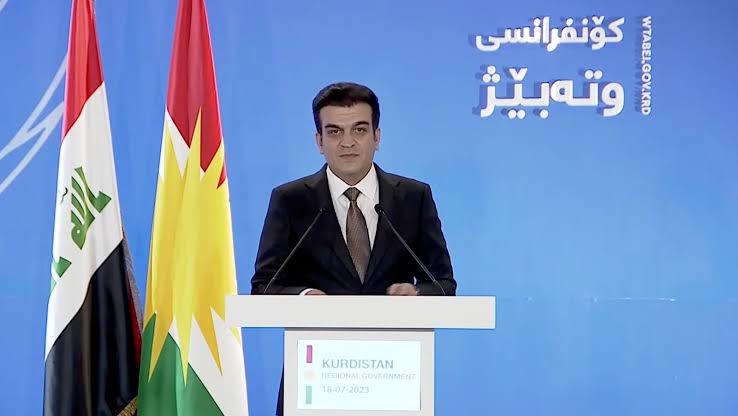
Shafaq News/ On Wednesday, the Kurdistan Regional Government (KRG) reiterated its commitment to welcoming displaced persons and addressed challenges in salary disbursement, oil exports, and political relations.
During a press conference, Peshawa Hawramani, the KRG's spokesperson, emphasized the region's open-arms policy toward displaced individuals, stating, "The people and government of Kurdistan have welcomed displaced persons in recent years with open arms, and no one will be forced to return." He further expressed support for the voluntary return of displaced persons, particularly those from Sinjar, without endorsing any coercive measures.
Regarding salary disbursement, Hawramani identified internal revenues and localization as obstacles. He clarified that while the "KRG does not oppose localization, efforts are focused on streamlining salary payments through the "My Account" project, facilitating salary receipt via banks."
He added, "TBI Bank has joined the My Account project, and Prime Minister Masrour Barzani directed cooperation with this bank in a Cabinet meeting."
"Employees can choose any bank among the seven participating banks in the 'My Account' project."
The KRG Spokesperson affirmed that all obstacles to salary disbursement have been overcome, and the government will take any measures to hand over internal revenues to Baghdad, and "we await the Federal Ministry of Finance to send employees' salaries as soon as possible."
Notably, the Kurdish government has faced significant challenges in meeting the timely and complete payment of salaries to its civil servants for the past decade. This financial strain intensified following a ruling by a Paris-based arbitration court that suspended the KRG's oil exports to international markets a year ago, exacerbating its financial crisis.
As a result, the KRG has been heavily reliant on local income sources and its allocated share from the federal budget, which has been a subject of controversy. Despite efforts to manage its fiscal situation, the KRG has consistently struggled to meet its salary obligations.
The Federal Supreme Court of Iraq's decision worsened the situation by issuing a ruling ordering the "localization" of salaries for all Kurdistan Region employees in federal banks. This decision has resulted in the halt of salary disbursements, leading to numerous strikes across various sectors.
Regarding the resumption of oil exports from Kurdistan Region fields to the Turkish port of Ceyhan, Hawramani pointed out that "technically, the pipelines are ready to resume oil exports, but currently, there are problems in oil production, and negotiations are ongoing regarding this issue, despite the presence of a signed agreement on it that has not been adhered to. Therefore, we are waiting for compliance with the agreements before resuming."
On the visit of the President of the Kurdistan Region, Nechirvan Barzani, to Tehran, Hawramani confirmed that "there are many common points with Iran, such as borders and deep cultural, political, and economic relations, and any meeting does not only mean discussing security issues."
Regarding the recent decision of the Federal Court to suspend the work of the Federal Commission regarding the Kurdistan Parliament elections, he noted that "the lawsuit by the Prime Minister of the Region was filed as a citizen's lawsuit, and any citizen has the right to exercise this right, and it is to correct a mistake made by some individuals."
